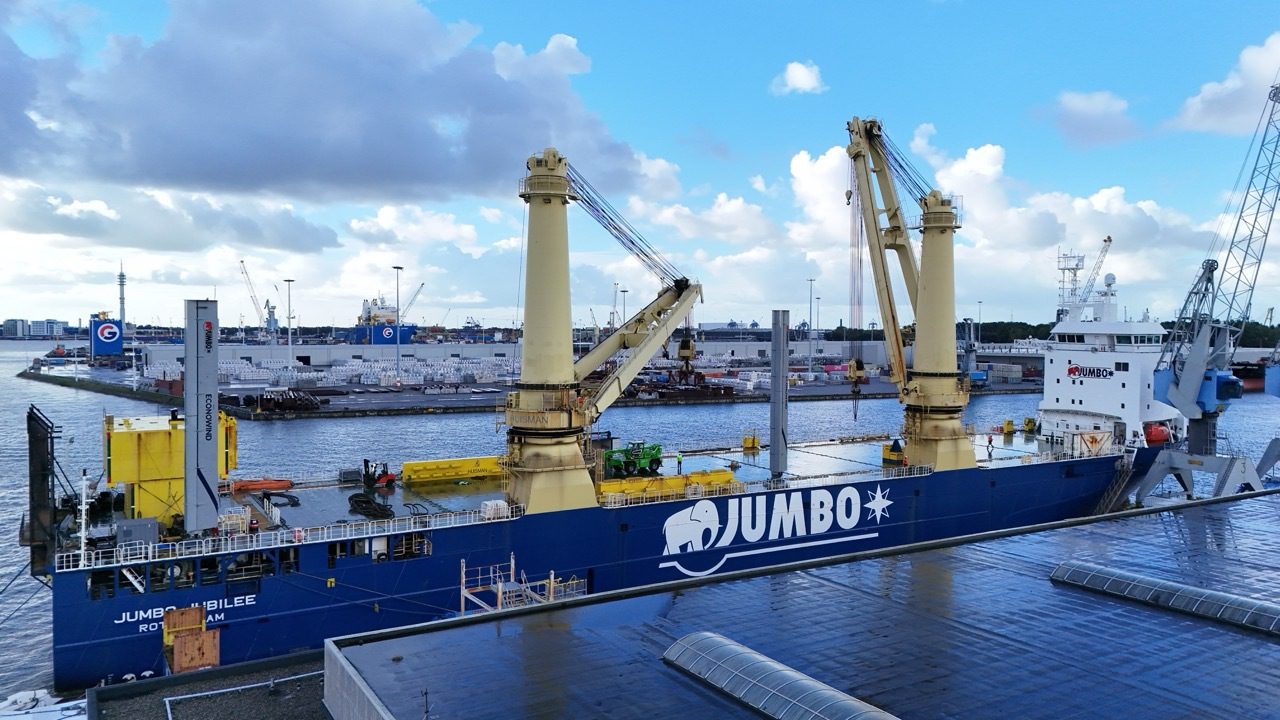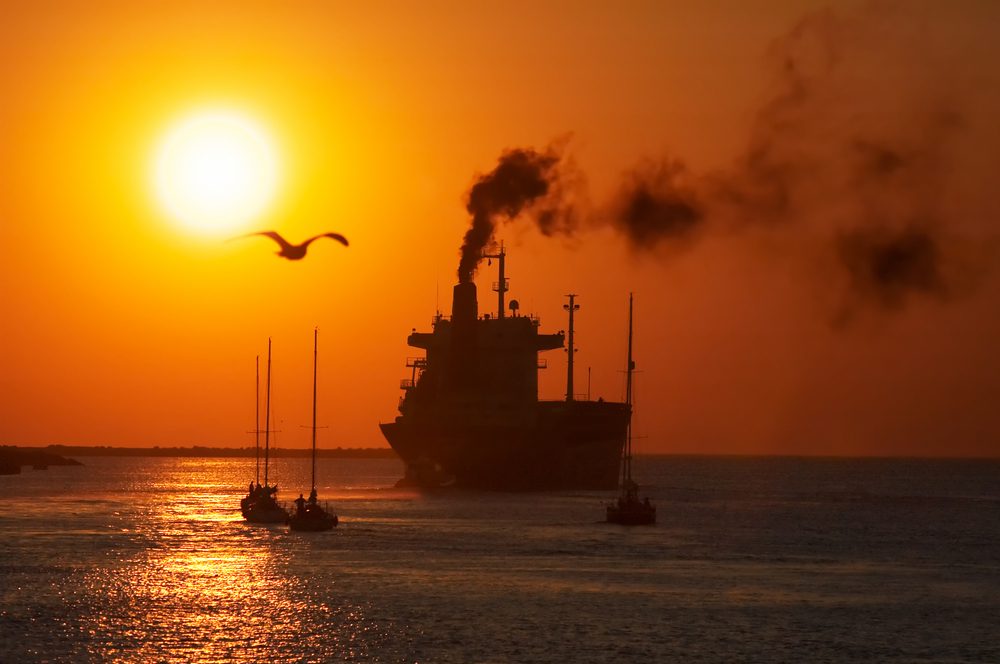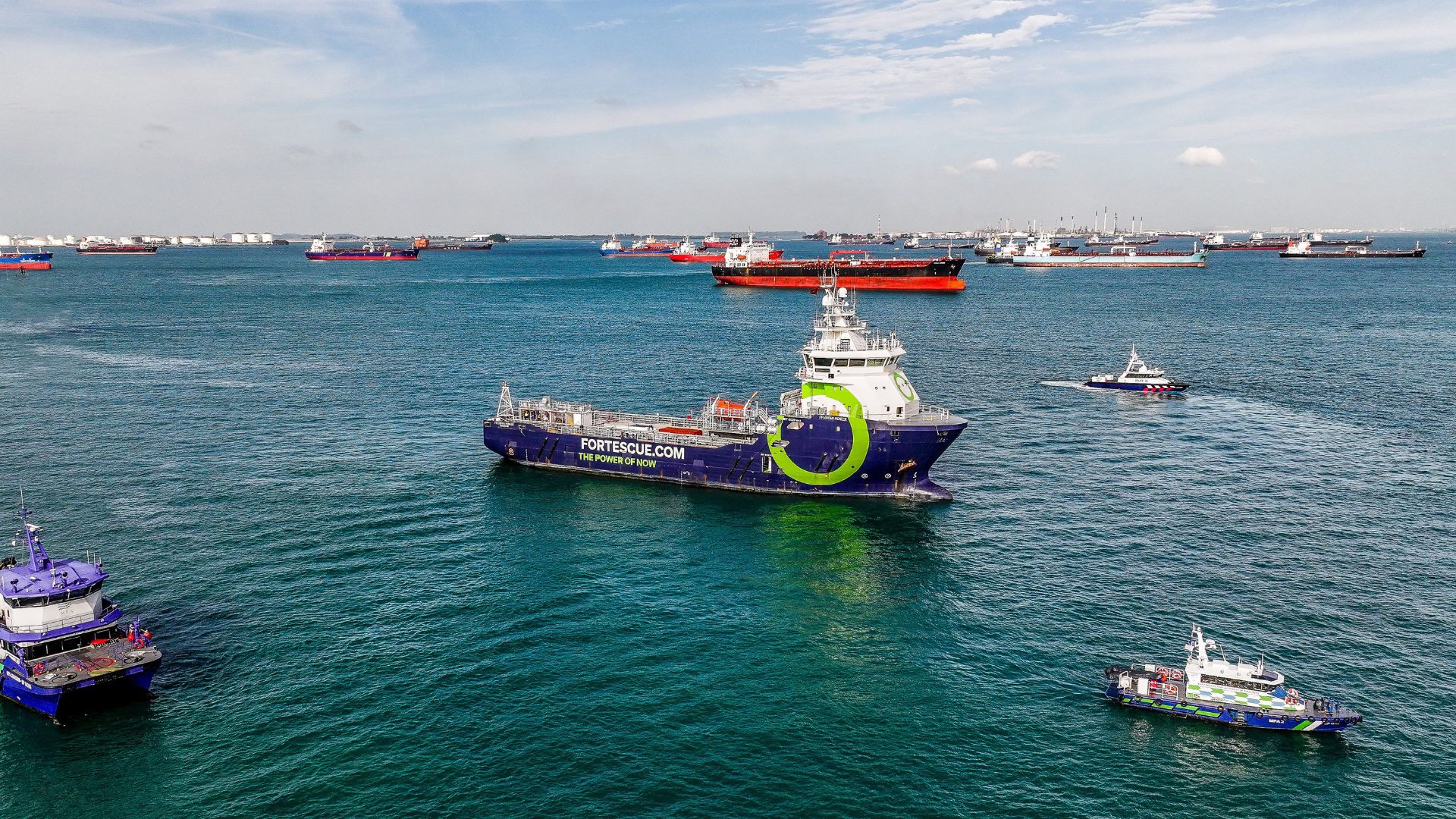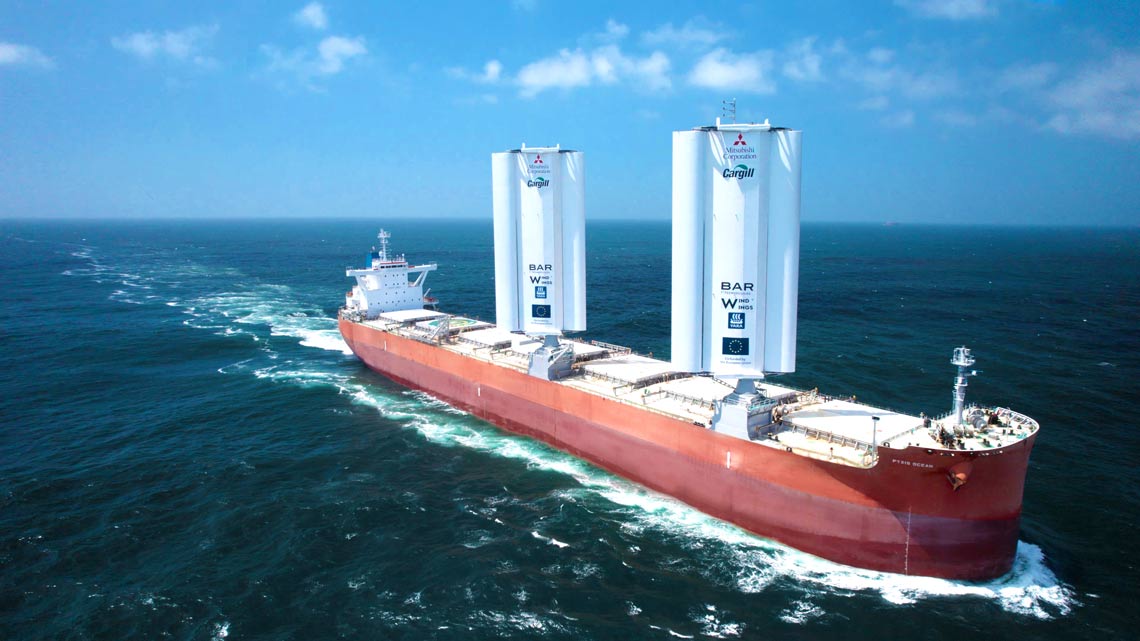Heavy-lift shipping Jumbo Shipping has taken a significant step towards sustainability by successfully installing two mechanical sails on its Heavy Lift Vessel (HLV) Jumbo Jubilee.
This wind-assisted ship propulsion (WASP) solution is the latest in a series of innovative technologies aimed at enhancing fuel efficiency and reducing carbon emissions.
The installation of these mechanical sails, known as Econowind ventofoils, is part of Jumbo’s broader strategy to advance sustainable heavy-lift shipping. This approach involves applying multiple fuel-saving solutions to a single vessel, allowing for the measurement of each technology’s contribution to overall efficiency.
“At Jumbo, we believe that every step towards sustainability is crucial,” said Jumbo CEO Daan Koornneef. “The installation of these mechanical sails on Jumbo Jubilee is a testament to our commitment to decarbonise and innovate.”
Prior to this latest innovation, Jumbo had already implemented several eco-friendly technologies on the Jumbo Jubilee, including an efficiency-boosting propeller coating, an AI-powered anti-fouling monitoring system, and an eco-control system. The addition of the mechanical sails will further assess the impact of WASP on the vessel’s efficiency.
Jumbo Technical Manager Andres Casanova explained the benefits of the new sails: “While not fully optimised for our vessel type, these sails will help us to gather valuable insights on real-world fuel savings and explore further optimisations that will allow Jumbo to reduce its environmental footprint even more.”
The mechanical sails are flexibly mounted on a customised frame, engineered in-house. The design allows the sails to be moved or even transferred to another vessel if additional cargo space is required.
In addition to the mechanical sails, Jumbo has implemented an AI-powered anti-fouling hull coating monitoring system. The technology captures a wide range of data, including vessel speed, geographical position, sea water temperature, and other environmental parameters, and can predict and notify when there is a risk of accelerated fouling, allowing for proactive maintenance and improved fuel efficiency.
An eco-control system, described by Casanova as “a type of intelligent cruise control,” has also been installed. This system optimizes fuel consumption and emissions by continually adjusting the vessel’s performance based on RPM and propeller pitch.
“If you want to reduce your environmental footprint, it’s not only down to one part of the company. It’s a team effort between those on board the ships and those on shore,” said Technical Superintendent Patrick Feddes. “The technologies play an important supporting role in creating energy savings, but a significant factor is awareness and cooperation throughout the various departments of the organisation.”
Editorial Standards · Corrections · About gCaptain

 Join The Club
Join The Club











